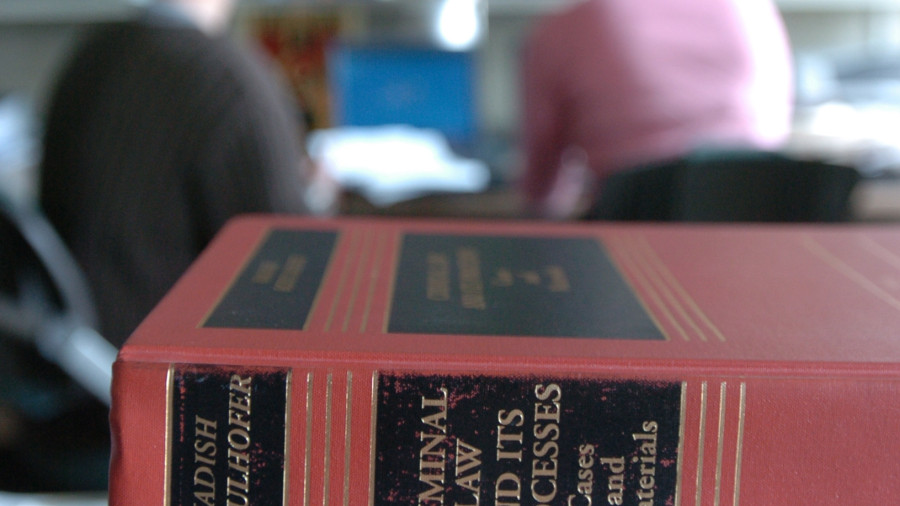
Law at Wolfson
The emphasis is on principle and technique, reasoning and explanation. There are opportunities to study the history of law, and to consider the subject in its wider social context. In studying Law as an academic discipline, students are required to think critically, to identify the policies which underpin particular rules and to suggest alternatives. They are expected to develop an understanding of the economic, political, social and international context in which the Law applies, and an appreciation of its ethical and philosophical consequences. This often requires students to engage with other academic disciplines. Wolfson College has around 15-20 undergraduates studying Law at any one time and our student body is drawn from across the nation and around the world.
Graduates from any discipline may apply to Wolfson for admission to a two-year law degree as an affiliated student. Affiliated students take Parts IB and Part II of the Law Tripos (effectively the second and third years of the law degree). It is possible to complete all seven foundation subjects in two years as an affiliated student and graduate with a qualifying law degree.
We are also very keen to encourage those students who do not yet have a degree to make applications to study the full three-year Law course with us at Wolfson.
You can find further information about studying Law on the University's course pages. Detailed information is also available on the Faculty's Prospective Undergraduates page.

What are we looking for?
We are looking for keen and diligent students who have an intellectual interest in the law and an aptitude for law. A legal aptitude includes an analytical mind, precision of thought and articulation, attention to detail, and the ability to build persuasive arguments. In addition, we value applicants who have an open and critical mind, and can see the different sides of an issue.
We do not expect applicants to have studied law or to have any specific legal knowledge (eg the content of the law of theft). That said, a general interest in real-world legal issues (eg from current affairs) may assist an applicant in demonstrating the above competences.
Entry Requirements
Many A level (or equivalent) subjects provide a good grounding for the study of Law at university and Colleges have an open mind about the subjects that are a sound preparation.
Good applicants tend to have taken subjects at A level (or equivalent) that develop a careful, analytical approach to reading and which require them to present information in a way which is well structured and thoughtfully argued. In our experience, applicants with backgrounds in Mathematics and science subjects perform as well as those whose background is in humanities subjects. Applicants are not required to have studied Law at GCSE or A level. Those who have done so tend not to have any special advantage once they begin studying Law at university.
Please consult the University's entry requirements for Law for further information.
Applications
Applications to study Law at Wolfson are submitted through UCAS. The College additionally requires the completion of the National Admissions Test for Law (LNAT) and an online interview, as detailed below.
| Written Work | No written work submission is required. |
| Assessment | All applicants for Law must register to take the Law National Aptitude Test (LNAT). Full details on how to register for the LNAT can be found here. Further details can be found on the Admissions assessment page of the University website. |
| Interview | Shortlisted candidates will be invited to be interviewed in December (or late March for those who apply in the March round). There will be one or two interviews (in total lasting 40-50 minutes) which will be conducted online via Zoom. Applicants may also be asked to spend 15-20 minutes immediately before interview reading an unseen passage. |
For more information about making an application, please visit our application webpages.
You can also find useful information on our Application FAQs page.

Student perspective: Law at Wolfson
The approach to learning here in Cambridge is geared towards not only understanding the way the law works in depth but also engaging with the current academic debates. There is a great focus on critically engaging with everything from decisions by the courts to academic opinions. Choosing a favourite paper is almost an impossible task – land, tort, and contract law are the ones I enjoy working on the most. I am also fascinated by the small overlaps and interconnectedness between the five distinct papers.
Overall, I am very grateful for the opportunities available here. Thanks to the pathway scheme, I was able to marshal at the Upper Tribunal (Immigration and Asylum). The scheme was set up by Kimberly Andrews (a Wolfson law student), Judge Keith, and a fund set up by Jane Beven. It was an extraordinary experience to interact with judges and watch the law at play.
Nethra Karnala Prathap (first-year affiliated undergraduate)
More information about Nethra's journey at Wolfson College can be found here.
